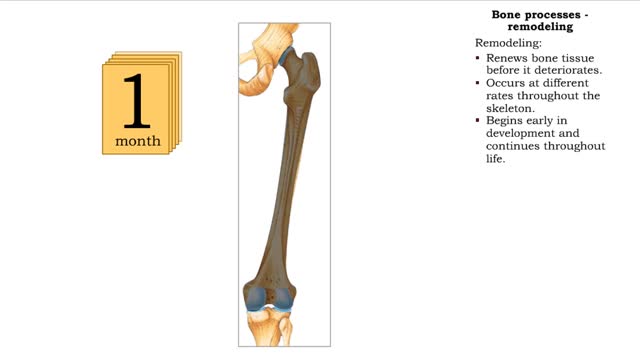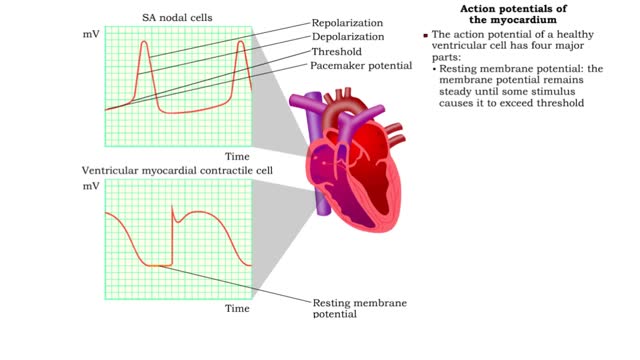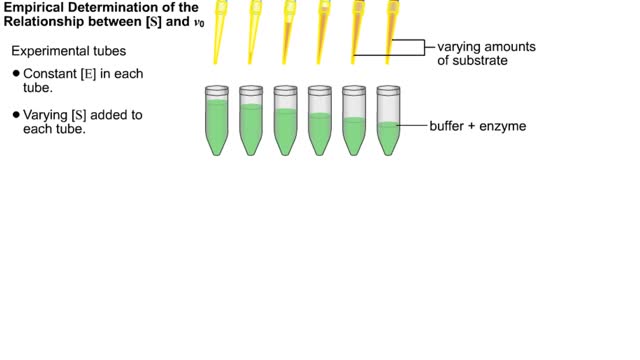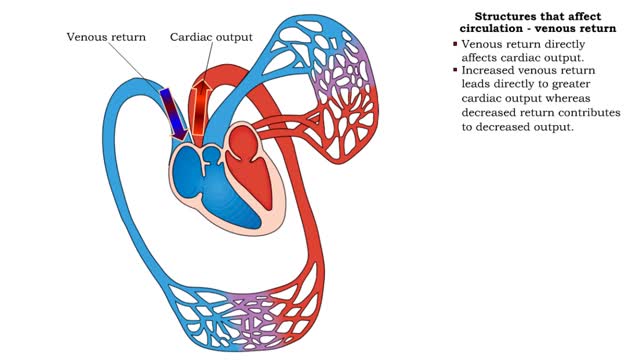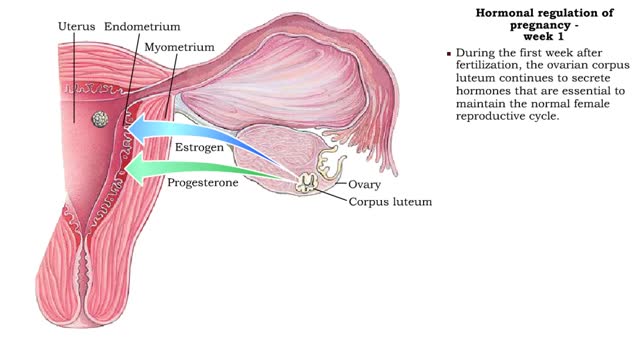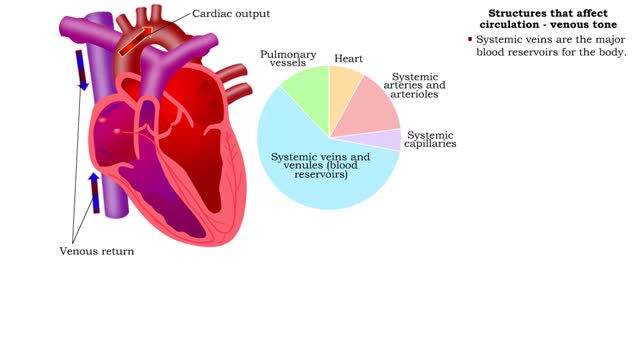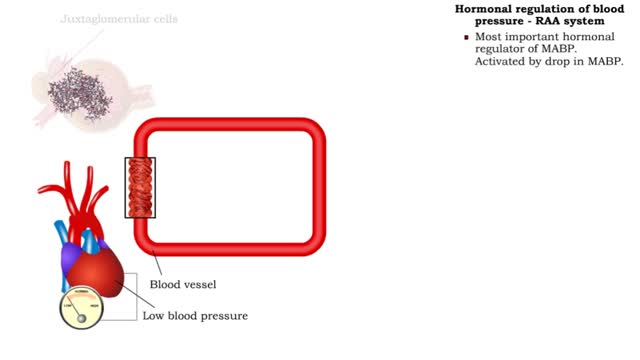Search Results
Results for: 'Factors that affect conduction rates'
Bone processes - resorption and deposition, remodeling and response to stress in adult bones
By: HWC, Views: 11261
• The process of remodeling bone tissues involves bone cells resorbing or depositing minerals into bone tissue. • During resorption, bone cells break down bone tissue and release calcium and other minerals for use by other cells in the body. • Bone cells also rebuild bone tissue by depo...
By: Administrator, Views: 14184
Pre-eclampsia (PE) is a disorder of pregnancy characterized by the onset of high blood pressure and often a significant amount of protein in the urine. When it arises, the condition begins after 20 weeks of pregnancy. In severe disease there may be red blood cell breakdown, a low blood platelet c...
Depolarization of the SA node, Action potentials of the myocardium & ANS effects
By: HWC, Views: 10914
• A typical contractile cell in the myocardium has a resting membrane potential. • The resting membrane potential of cells in the SA node is not fixed, and is known as the pacemaker potential. • The action potential of a healthy SA nodal cell has three parts: • Pacemaker potential: ...
Kinetic parameters & Kinetic experiment
By: HWC, Views: 10856
Kinetics is a measure of the speed or rate of a chemical reaction. A study of kinetics allows us to determine which variables to control (temperature, reactants, catalysts) and how to vary them in order to maximize the amount of products formed and minimize the time involved. Vmax = maximum ve...
Structures that affect circulation - venous return
By: HWC, Views: 10926
• Venous return directly affects cardiac output. • Increased venous return leads directly to greater cardiac output whereas decreased return contributes to decreased output. • Venous return depends on: • Blood volume regulation by the kidneys. • Venous tone. • Skeletal muscl...
By: Administrator, Views: 13882
Kidney stones (renal lithiasis, nephrolithiasis) are hard deposits made of minerals and salts that form inside your kidneys. Kidney stones have many causes and can affect any part of your urinary tract — from your kidneys to your bladder. Often, stones form when the urine becomes concentrate...
Hormonal regulation of pregnancy - week 1
By: HWC, Views: 11354
• During pregnancy, hormones play a significant role in triggering changes in the mother and fetus. • Ormones : • Maintain the lining of the uterus and prevent menstruation. Prepare the mammary glands for lactation. • Increase flexibility of the pubic symphysis. • Affect the mot...
Structures that affect circulation - kidneys, blood volume and venous tone
By: HWC, Views: 11063
• Kidneys regulate blood volume and blood osmolarity via salt and water reabsorption. • Increased reabsorption increases blood volume and venous return (and CO). • Decreased reabsorption increases urine production, which decreases blood volume and venous return (and CO). • Systemi...
Hormonal regulation of blood pressure - RAA system
By: HWC, Views: 11543
■ Long-term regulation of MABP is under hormonal control. • Hormones that affect blood pressure and volume: the renin-angiotensin-aldosterone (RAA) system, antidiuretic hormone (ADM), and atrial natriuretic peptide (ANP). ■ Most important hormonal regulator of MABP. Activated by drop in...
Advertisement



